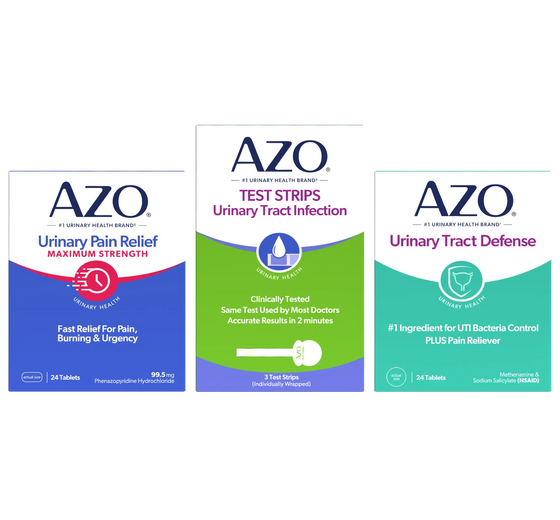
Small, but Mighty: the original Super Fruit
Every year, a new “superfood” seems to dominate the conversation. But, cranberries, dubbed the “original super fruit” have been on center stage since before the days of the pilgrims. From reducing your risk of everything from cavities to urinary tract infections (UTIs), cranberries have long been lauded for their medicinal properties. But research shows that not all cranberry supplements are created equal.
Research shows that not all cranberry is equal.
Health Benefits of Cranberry
Cranberries are more than a delicious accompaniment to Thanksgiving dinner or your favorite cocktail. Research has linked these little red berries to a staggering number of health benefits, including:
- Help cleanse the urinary tract, which could lower risk of UTIs and bladder infections
- Improving immune function4
- Decreasing blood pressure4
- Preventing certain types of cancer 4
- Offering a good source of Vitamins C, E, K and Fiber4
- Providing high levels of flavonoids and phytonutrients—naturally occurring compounds with powerful antioxidant and antimicrobial properties4
Cranberry & UTIs
Despite a host of health benefits, cranberries are most often associated with urinary health and UTI protection. Once more of a home remedy, recent research has helped boost cranberry’s credibility in modern science. A 1998 Rutgers University study credited proanthocyanidins (PACs), a flavonoid abundant in cranberries, with preventing E. coli, the bacteria responsible for 90% of UTIs, from attaching to the walls of the urinary tract. Instead, the bacteria are flushed from the tract, preventing urinary tract infections.2 And most recently, a study through Boston University found cranberries to reduce symptomatic UTIs by nearly 40% in women with recurrent UTIs.3
Straight from the Source. Watch the AZO team explore one of their cranberry bogs and the source of AZO Cranberry®.
Not all Cranberry is Created Equal
It’s true, cranberries contain antioxidants that can add a layer of protection from UTI. But, researchers are quick to point out that not all cranberry sources pack the same punch. And that there are ways to incorporate cranberry into your diet beyond just drinking cranberry juice. Researchers at the Texas A&M Health Science Center College of Medicine and House contend that while cranberry supplements pack the potency to prevent bacteria from attaching to the urinary tract, drinking cranberry juice alone isn’t enough.1
“Cranberry juice, especially the juice concentrates you find at the grocery store, will not treat a UTI or bladder infection. It can offer more hydration and possibly wash bacteria from your body more effectively, but the active ingredient in cranberry is long gone by the time it reaches your bladder.”
–Dr. Timothy Boone, PhD, vice dean of the Texas A&M Health Science Center College of Medicine in Houston
The same study indicated that cranberry pills, can reduce the risk of a UTI up to 50%.1 What makes cranberry pills like AZO Cranberry® a better choice than other cranberry sources? AZO Cranberry® products are backed by science. They are made with clinically-proven, Pacran®, a super-concentrated whole fruit cranberry powder and includes early black cranberries, rich in bacteria blocking PACs.4 Unlike other cranberry supplements, Pacran® pulls from the entire fruit—the seeds, the skin, the pulp and the juice to tap every last bit of the superfood’s benefits. Their high concentration lets you reap the powerful benefits of antioxidant-rich cranberries with a fraction of the sugar and calories of cranberry juice. It’s a safe and convenient way to get your daily cranberry.
Plus, AZO Cranberry® offers a second line of defense. It contains a probiotic, which helps nurture your body’s “good” bacteria and protect against UTI-causing bacteria.
Cranberry in the News. Top researchers speak out in defense of cranberries.
10 FUN FACTS ABOUT CRANBERRIES
In the spirit of the cranberry, here are 10 things you might not know about this superfood!
- Cranberries are one of three berries native to North America1
- Fresh cranberries, when sealed in a tightly closed plastic bag and refrigerated, can last two months1
- Fresh cranberries have only 45 calories per cup1
- One cup of whole cranberries has 8,983 total antioxidant capacity1
- Cranberries contain more antioxidants than strawberries, spinach, broccoli, red grapes, apples, raspberries, and cherries
- AZO Cranberry® products contain a super-concentrated form of whole fruit cranberry (one serving is equal to 25,000mg of fresh cranberry)†
- Just two AZO Cranberry® gummies, caplets or softgels contain the same health benefits of 8oz of cranberry juice*††
- Native Americans have been using cranberries since the 1620s for nutritional and medicinal purposes2
- Cranberries do not grow in water, but in dry fields that are flooded for harvesting2
- AZO packs the power of cranberry into AZO Cranberry® products so urinary tract health maintenance can be easily incorporated into your lifestyle*
After a 2016 study cast a negative light on cranberry, top medical professionals and cranberry researches were quick to point out the many fallacies of the study rendering its methodology questionable and any findings unreliable. Read more about the study.
Interested in tips to help reduce your risk of a UTI? Check out our do’s and don’ts.
1https://www.medicalnewstoday.com/articles/269142.php
2https://www.cranberries.org/health-benefits
3https://www.businesswire.com/news/home/20160614005444/en/Landmark-Study-Suggests-Cranberries-Decrease-Antibiotics
4https://www.livestrong.com/article/379952-side-effects-of-azo-cranberry/








